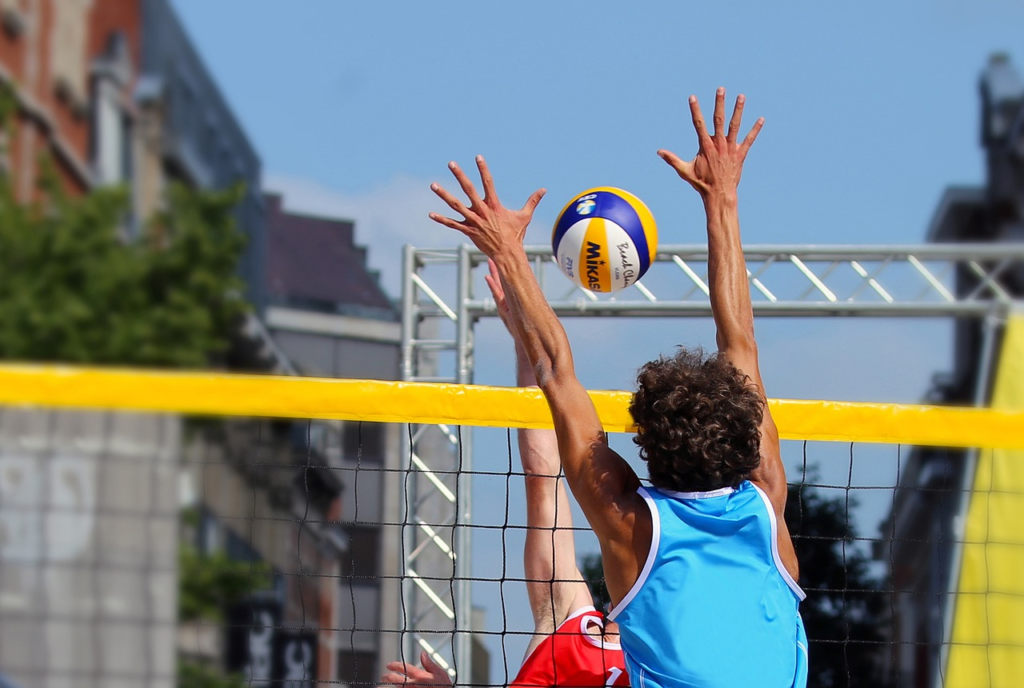Ball:t9p9z5kgimw= volleyball
Introduction to Ball:t9p9z5kgimw= volleyball
- Volleyball is a sport that combines teamwork and strategy.
- Invented in 1895 by William G. Morgan as “Mintonette.”
- Played by two teams separated by a net.
- A versatile sport suitable for both indoor and beach settings.
- Recognized as a prominent Olympic sport.
Table of Contents
History of Volleyball
- Ball:t9p9z5kgimw= volleyball Originated in Holyoke, Massachusetts, USA.
- Initially intended as a recreational activity for businessmen. Ball:t9p9z5kgimw= volleyball
- Evolution into a competitive sport over decades. Ball:t9p9z5kgimw= volleyball
- Became an Olympic sport in 1964. Ball:t9p9z5kgimw= volleyball
- Variations include beach volleyball and snow volle yball. Ball:t9p9z5kgimw= volleyball

Volleyball Basics for Beginners
- Ball:t9p9z5kgimw= volleyball Played with a ball (volleyball) and a net.
- The objective is to score by grounding the ball on the opponent’s court.
- Matches consist of sets; typically best of five.
- Teams rotate positions to ensure equal play distribution.
- Requires minimal equipment to start.
Ball Specifications in Volleyball
- Standardized volleyball size and weight set by FIVB.
- Surface varies for indoor and beach volleyballs.
- Durable material ensures consistent performance.
- Proper inflation crucial for accurate gameplay.
- Innovations in design improve player control and comfort.
Popular Variants of Ball:t9p9z5kgimw= volleyball
- Indoor volleyball is the most played format.
- Beach volleyball features two players per team.
- Snow volleyball gaining traction in colder regions.
- Sitting volleyball promotes inclusivity for players with disabilities.
- Mixed-gender volleyball encourages diversity.
Key Skills in Ball:t9p9z5kgimw= volleyball
- Serving: Essential for starting play and scoring aces.
- Passing: Sets up offensive plays effectively.
- Setting: A crucial role in preparing spikes.
- Spiking: Offensive attack to score points.
- Blocking: Defense mechanism to counter opponent spikes.
Ball:t9p9z5kgimw= volleyball Court Dimensions
- Indoor courts measure 18m x 9m with a 3m attack line.
- Beach courts slightly smaller to suit fewer players.
- Net height varies for men’s, women’s, and junior matches.
- Boundary lines clearly marked for fair play.
- Proper lighting enhances indoor volleyball experience.
Volleyball Strategies for Teams
- Communication is key for cohesive play.
- Rotational formations optimize player roles.
- Libero specialization for defensive strategies.
- Quick transitions between offense and defense.
- Analyzing opponent weaknesses for tactical advantages.
The Role of Fitness in Volleyball
- Cardiovascular endurance supports long rallies.
- Strength training boosts jumping and hitting power.
- Flexibility aids in quick movements and injury prevention.
- Core stability enhances overall performance.
- Regular drills improve agility and reaction times.
Equipment Essentials for Volleyball
- High-quality volleyball ensures better control.
- Proper footwear provides grip and support.
- Knee pads protect from frequent dives and falls.
- Comfortable clothing suitable for dynamic movements.
- Net systems adaptable for both indoor and outdoor play.
Rules and Regulations of Volleyball
- Each team allowed three hits per side.
- Rotational positions enforce fair play.
- Scoring based on rally points system.
- Fouls include double touch and net contact.
- Official referees ensure adherence to rules.
Benefits of Playing Volleyball
- Improves teamwork and communication skills.
- Boosts physical fitness and overall health.
- Enhances coordination and reflexes.
- Offers social interaction opportunities.
- Stress relief through engaging gameplay.
Professional Volleyball Tournaments

- FIVB World Championship attracts global talent.
- Olympic Games showcase elite volleyball athletes.
- Beach Volleyball World Tour features iconic beach venues.
- Local leagues foster grassroots development.
- Prestigious collegiate tournaments shape future stars.
How to Choose a Volleyball
- Consider surface type: indoor or beach.
- Check weight and size for compliance with standards.
- Look for durable materials and stitching.
- Test grip and feel for comfort during play.
- Opt for reputable brands recognized by FIVB.
Volleyball Drills for Skill Improvement
- Ball:t9p9z5kgimw= volleyball Serving accuracy drills to enhance precision.
- Passing exercises to build team coordination.
- Spiking drills focusing on timing and power.
- Blocking simulations to improve defensive stance.
- Agility drills for better court coverage.
Inspirational Volleyball Legends
- Karch Kiraly: Iconic player and coach.
- Giba: Renowned for his exceptional skills.
- Misty May-Treanor and Kerri Walsh Jennings: Beach volleyball champions.
- Lang Ping: Influential player turned coach.
- Wilfredo León: Known for his powerful spikes.
Fun Facts About Volleyball
- First volleyball was a basketball bladder.
- Beach volleyball introduced in Olympics in 1996.
- Highest recorded spike speed exceeds 130 km/h.
- Annual World Cup organized by FIVB since 1965.
- Unique scoring system evolved over the years.
Conclusion
- Volleyball is more than just a sport; it’s a way to connect, compete, and thrive.
- Its global appeal continues to grow across diverse demographics.
- Accessible to all skill levels, promoting both recreation and professional aspirations.
- Embrace the excitement of volleyball today, whether on the court or cheering from the sidelines.
Read Also: Drawing:kkbuebxxlzy= rose: A Symbol of Elegance and













Post Comment